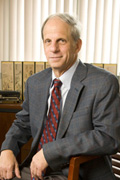 Soul, Self and Society: The New Morality and the Modern State, a new book by Edward L. Rubin. University Professor of Law and Political Science that addresses the emergence of a “new morality” and its organic relationship with the administrative state. The book has just been released by Oxford University Press.
Soul, Self and Society: The New Morality and the Modern State, a new book by Edward L. Rubin. University Professor of Law and Political Science that addresses the emergence of a “new morality” and its organic relationship with the administrative state. The book has just been released by Oxford University Press.
Rubin’s book describes the way morality and governance have interacted with each other over the course of Western history and then focuses on our current moral transformation. While conservatives and traditionalists perceive modern developments, such as permissive attitudes toward premarital sex, homosexuality, abortion, assisted suicide and drug use as symptoms of moral decline and decay, Rubin asserts that these developments actually represent the advent a new morality centered on human self-fulfillment. The “new morality” encourages individuals to pursue the most meaningful and rewarding life-path and demands career opportunity, gender equality, sex based on mutual consent and adequate education, health and welfare services for every person, as well as protection of the Earth’s environment.
“The moral system that dominated the Western World for nearly one thousand years is in decline, and we are experiencing the rise of a new morality of self-fulfillment that is dramatically different from anything that went before,” Rubin said. “Its development in conjunction with administrative government reveals that opposition to this form of government is not a way to protect liberty, as conservatives claim, but rather a violation of modern moral standards.”
Written in a lively and engaging style, Rubin’s book belongs to the tradition of grand social theory, like Francis Fukuyama’s The End of History, Charles Taylor’s The Secular Age, and Richard Sennett’s The Fall of Public Man.
An accomplished and erudite scholar, Rubin specializes in administrative law, constitutional law and legal theory. He is the author of numerous books, articles and book chapters. He joined Vanderbilt Law School as Dean and the first John Wade–Kent Syverud Professor of Law in July 2005, serving a four-year term that ended in June 2009, when he was appointed University Professor of Law and Political Science.